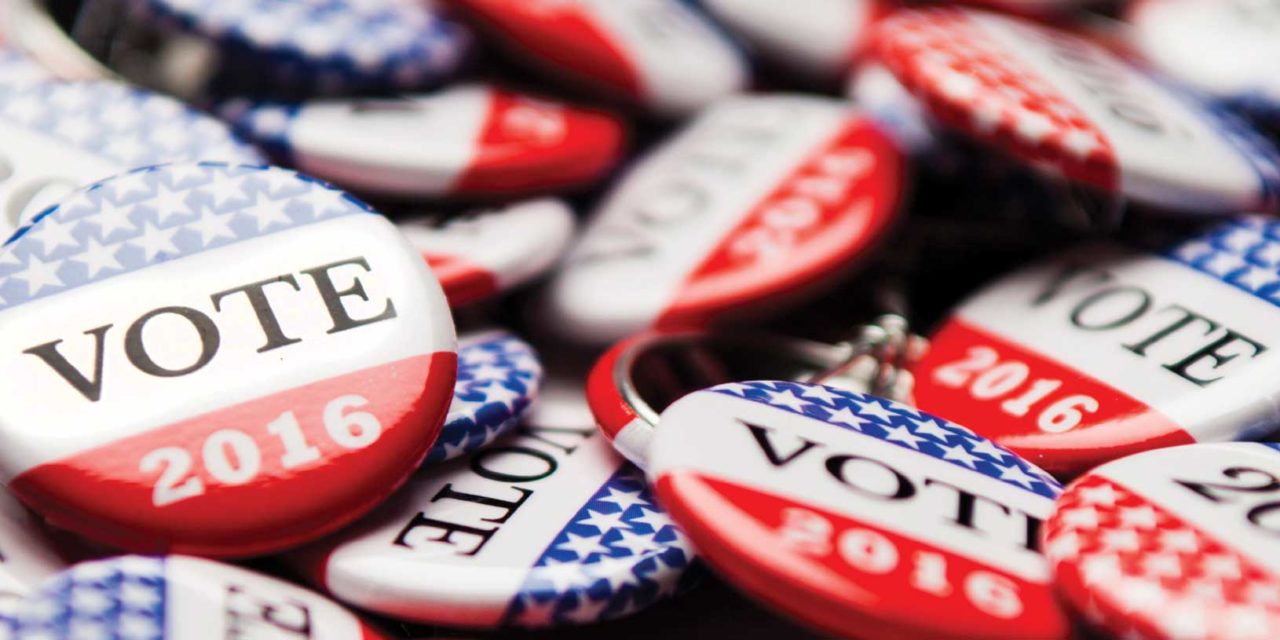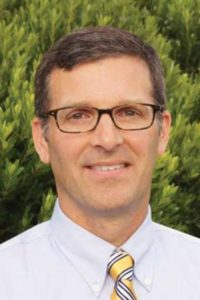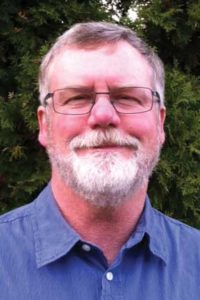by Lisa Moody Breslin
There should be plenty of motivation to engage in local and national elections, but just in case that interest flags, Carroll Magazine called the chairs of the Republican Central Committee and Democratic Central Committee and asked them to help us raise awareness.
We offered each the exact same guidelines. They both had 150 words to answer each question, a May 1 deadline and comfort in knowing that their responses would run “as is” – unedited without verification of points each opted to make.
Both gentlemen agreed to the terms and met them. Enjoy their responses. We did.
Name: Matthew Helminiak
Years on Central Committee: 6
Committee Website: www.ccgop.net
What should be the top three issues nationally? Why? Supreme Court: With the death of Antonin Scalia, the Supreme Court is literally in the balance. Whoever wins the Presidential race will nominate a replacement and tilt the balance of the court in their direction.
Government spending: after saying that a $9 trillion debt was “un-American” under President Bush, the current Democrat President put his foot on the spending gas and has not let up. By the time he’s done, we will owe over $19 trillion. We need to get our financial house in order, grow the economy, and stop spending our children, grandchildren, and great-grandchildren’s money.
National security: We are more vulnerable than ever to terror attacks and to nuclear threats from rogue countries. The Democrat President’s solution was to pretend it didn’t exist – never even saying the words “Islamic terrorism”. The next President will need to take these threats seriously and rebuild the military that President Obama gutted.
What should be the top three issues locally? Why? The School Board: Over half of our county’s budget is handed over to the School Board. The budget is complex and there are no easy solutions to our problems. It takes smart staff and smart board members to fix decades of mistakes. This board didn’t build the high school we don’t need, but they (and we) have to pay for it.
Growth: We need to increase our commercial tax base and our student population. Both will require growing our county and realizing that “growth” is not a dirty word. We need to attract businesses and families that want to call Carroll County home.
State Regulation: Much of our local spending, including schools, is mandated by the State. The portion that is discretionary is very small. We need to work with Governor Hogan to reduce mandates from the Democrat-controlled state legislature so that our local officials can control our local affairs.
For voters who either don’t know who to vote for, or are not satisfied with their options, what advice do would you offer? You can do research on the candidates’ websites, but in many local races you can meet the candidates at the carnivals this summer or even contact them directly by email. If that doesn’t work for you, many organizations research the candidates and provide voter guides. The NRA, unions, AARP, and many other groups will put out information on their website or direct to their members giving their opinions of the candidates.
If you are not satisfied with the options, especially if you are a registered independent and don’t get to vote for candidates in the party primaries, you need to pick one of the parties that you agree with most and switch your affiliation so you can vote in the primary. If you don’t vote, you can’t complain.
How would you respond to someone who states, “My vote won’t matter.” In the Presidential race, you’re probably correct. Anyone over 30 probably remembers Florida 2000 when the Presidential race came down to only a few dozen votes, but that is the exception, not the rule. Very rarely does an election hinge on a single vote, but there are many races where the margin of victory is less than a hundred.
For some of the local races where our county is broken up into districts, the margin of victory is sometimes under fifty. So your vote absolutely does matter. Your school board and commissioners count on every last vote. Our job as Central Committee members is to convince as many people as possible that agree with us to turn out and vote – so if you’re leaning Democrat and reading my answer, please don’t vote. If you’re leaning Republican, please vote.
Name: Don H. West
Years on Central Committee: 6 (chairman for 2 years)
Committee Website: www.ccdems.com
What should be the top three issues nationally? Why? Continuing the policies of the current administration is crucial. President Obama has led a turnaround from an economic depression. He ended two unpopular wars; championed voting, civil, and reproductive rights; and initiated healthcare reform – all with an obstructionist Congress. There is more to be done, but we are stronger now than 8 years ago.
Security is still a concern, but slogans like “build a wall” and “close the borders” don’t make us safer, just more isolationist. Domestically, crime is down, but gun violence is up. More guns don’t make us safer, but a more comprehensive approach, including mental health reforms, sensible gun legislation, and an overhaul of prisons will lead to safer communities.
Finally, Supreme Court appointments will play a big role during the next administration. The current Senate’s refusal to offer advice and consent on nominee Merrick Garland only weakens our democracy.
What should be the top three issues locally? Why? Carroll County is grappling with some major issues. Unfortunately this election cycle won’t have much of an impact on those issues, except for the non-partisan School Board contest.
The concerns surrounding education are one of those local issues – school closings, funding levels and teacher retention are all manifestations of policies that we are going to be hammering out for some time unless our leaders commit to a comprehensive, long-term course.
Sustainable economic development is another key issue locally. Chain restaurants and big box retailers do not provide the jobs our local economy needs. With no chance of a new interstate highway or regional mass-transit, what will drive that growth?
Technology will be the key to our future growth. Westminster has invested in a new fiber optic network. This technology will bring the professional development our area needs, and it will attract good paying jobs and families to our community.
For voters who either don’t know who to vote for, or are not satisfied with their options, what advice do would you offer? The key to knowing who to vote for is education – you must do your homework! There is a wealth of information available in newspapers, online, and even from watching or attending candidate forums. During the primary, we hosted a popular Congressional District 8 forum, and our local CC Dems Club hosted a School Board forum (non-partisan).
Frankly, I can’t understand someone who waits until arriving at the polls to make a decision. Some folks expend more energy deciding on their morning coffee than they do their candidates.
If you desire to learn more about a candidate, I would recommend getting involved in the process personally – volunteer with a campaign, join a club, even host an event in your home. If you still aren’t sure, contact a Central Committee (either one, really). The essential point is to get involved and become better informed.
How would you respond to someone who states, “My vote won’t matter.” Unfortunately, that sentiment is common. Let me assure everyone – your vote does matter. Voting is the foundation of our republic – it is our voice and responsibility.
To those who believe their vote doesn’t matter, remember Florida in 2000, when our President was chosen by 537 votes out of almost 6 million cast. And just last year, in Mississippi, a legislative seat was decided by drawing straws!
This disillusionment among voters stems from two factors. First, the obscene amount of money funding campaigns. Citizens United opened the floodgate for unregulated contributions, and many feel elections are purchased rather than won. Secondly, the tendency of some candidates to tell voters what they want to hear, followed by frustration once reality sets in.
It’s really about the math; our elections should be about addition and multiplication. If we rely on subtraction and division – beware of the outcome!



